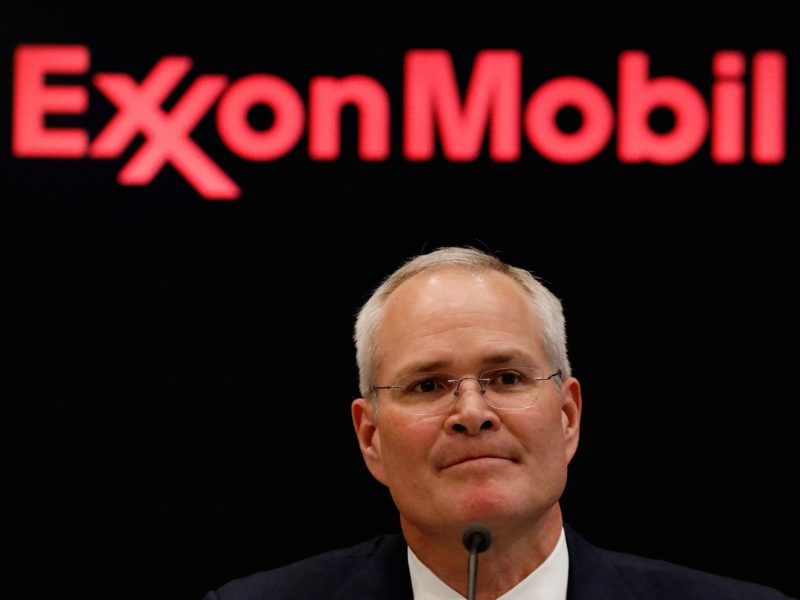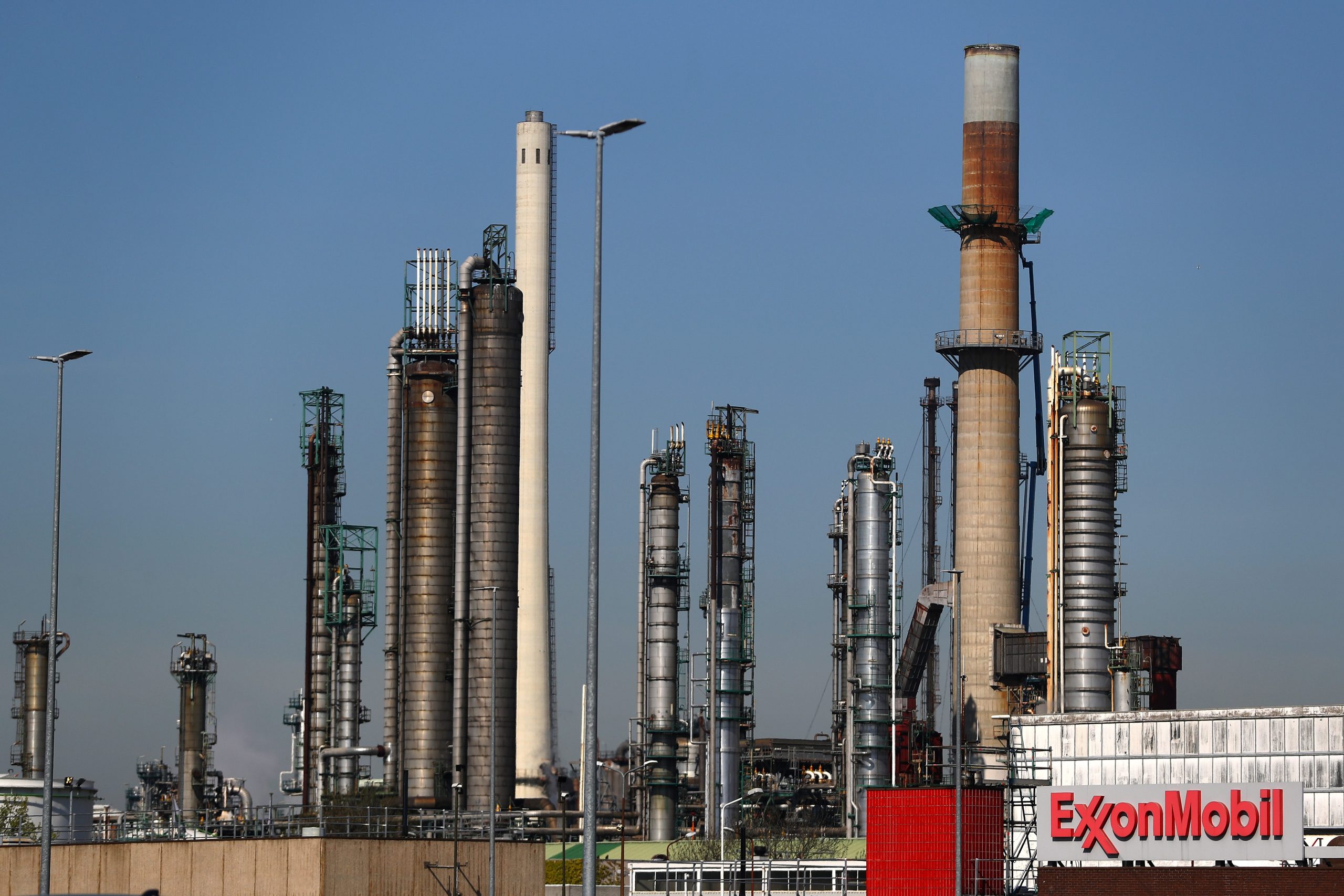This story is for subscribers to Business Insider. For a brief period, we’re making it widely available. Click here for more information on a subscription to Business Insider.
- Exxon is disguising layoffs as performance-based job cuts, according to current and former employees.
- Several employees said they received no negative feedback prior to being told that they were ranked as poor performers and forced out of the company.
- Exxon presents itself as a stable giant within a volatile industry, in part to attract talent, documents show.
- “We do not have a target to reduce headcount through our talent management process,” Ashley Alemayehu, an Exxon representative, said in a statement. “We have a rigorous talent management process which routinely assesses employee performance.”
- For more stories like this, sign up here for our weekly energy newsletter, Power Line.
Like many of her colleagues, Katie considered herself a hard worker. Her manager told her as much, often throwing compliments her way about the value she was delivering to Exxon, her employer, and the largest oil company in the US.
Earlier this summer she was told she was in good standing, quelling fears that she’d be axed as part of Exxon’s performance-based cuts, which were ramping up in the wake of the worst oil downturn in a generation.
Then everything changed.
Days ago, Katie was told she was among the company's worst performers during Exxon's annual review process. Her options were to resign or enroll in a performance improvement plan that she knew employees rarely passed.
Katie, an alias we're using to protect the employee's identity, chose to leave the company.
Exxon is hoping that thousands of others will make a similar choice, in order to cut costs and avoid public layoffs, according to internal documents and 19 current and former workers. Katie's identity is known to Business Insider, and we verified that she worked at Exxon.
As Business Insider previously reported, Exxon made two big changes to its performance-review system in April, right as oil prices collapsed. The changes put as many as 10% of the company's workers in the same situation as Katie - they can resign or retire, or attempt the performance-improvement process.
The coronavirus pandemic cratered demand for fuel, sending oil prices tumbling and slamming the finances of major oil companies. To reduce costs many laid off staff. BP and Schlumberger, for instance, are cutting a combined 31,000 workers.
Click here to subscribe to Power Line, Business Insider's weekly energy newsletter.
Exxon, which has about 75,000 workers, has taken a different approach, leaning instead on performance-based cuts. The company prefers to cut workers quietly, in part to preserve its reputation as a stable place to build a long-term career, according to documents and two workers familiar with the company's recruiting process.
In a statement to Business Insider, Ashley Alemayehu, an Exxon representative, said the company's performance-review process isn't designed to cut workers.
"We do not have a target to reduce headcount through our talent management process," she said. "We do not have any plans for layoffs at this time."
Still, it's not surprising that an oil company like Exxon would need to cut jobs, said Sam Margolin, an analyst at Wolfe Research.
"Clearly, demand for energy is going to be down next year," he said. "In that environment, the company is going to be doing less, they're going to be spending less. That would suggest a lower headcount."
Margolin said that it's not unusual for layoffs to be based on performance, and other major corporations have deployed similar strategies. On Monday, for example, Reuters reported that Goldman Sachs is rating up to 10% of its workers as under-performers, potentially leading to deeper cuts this year.
Are you a current or former Exxon employee? Reach out to this reporter at [email protected] or through the secure messaging app Signal at 646-768-1657.

Exxon is cutting up to 10% of workers
The documents obtained by Business Insider paint a detailed picture of how Exxon evaluates its workers, and how it adjusted the process to cut more people.
Exxon ranks its workers using several categories, ranging from "outstanding performance with distinction" to "needs significant improvement" (NSI). Within groups of similar employees, or rank groups, supervisors must place a minimum percentage of workers in each category after the annual assessment period, according to documents and two sources familiar with the process.
In April, Exxon changed its policy, requiring that managers put 8% to 10% of US salaried workers into the lowest category this year, regardless of whether they actually considered 8% of workers to be poor performers. Prior to that, the minimum was 3%, and for newer hires, there was no minimum at all.
Additional low-ranking staff will be trimmed overseas, though the details vary from country to country, sources and documents reveal.
Employees who are ranked in the bottom category are forced to resign, retire, or enroll in a performance improvement plan (PIP), depending on how long they've been with the company, according to documents seen by Business Insider and people familiar with the matter. Some newer workers who are ranked in the second-lowest category, "needs improvement," also face similar options, per documents and an employee with direct knowledge of the process.
Employees who resign are given three months of pay and benefits, in addition to outplacement services.

Two people familiar with Exxon's internal HR policies said it's rare for anyone to successfully complete a performance improvement plan and stay with the company.
In a statement to Business Insider, Exxon said its lowest-ranking employees "are given a plan and opportunities to improve their performance."
Exxon made other tweaks to increase the cuts as well, the documents show. In the past, supervisors were able to seek exemptions for their staff if they were ranked at the bottom for reasons they thought were not fair, according to a person familiar with the process. In other words, there was leniency, the employee said. This year, those requests must be approved by a president-level employee, documents show.
"No exemptions expected," a document seen by Business Insider said.
'A very subjective process'
Five current and former workers, including a senior-level employee with direct knowledge of the process, said the ranking system is subjective and largely hinges on how willing a given supervisor is to fight for his or her employee.
A recording of an internal meeting provided to Business Insider shows that HR staff knew some people who were ranked at the bottom didn't deserve to be there.
In ranking meetings, supervisors are often not familiar with each others' direct-reports, so they end up "hanging on to buzzwords that help create an order," said a former employee who's been in the room during these meetings, where managers rank employees in a given group.
"It just comes down to who's the toughest, who's the loudest, who's the biggest advocate for their people," the former employee said.

Seven people who spoke to Business Insider said their ranking - which they learned about in the last few weeks - caught them by surprise because they were given no indication that their performance was a problem and would put them at risk of losing their jobs.
Supervisors also didn't provide a clear explanation of why they were in the bottom, other than commenting on soft skills or personality traits, which they said didn't reflect their performance.
"A lot of it is behavioral," said the senior employee, who is not at risk of getting cut. "It's a very subjective process."
Exxon's pitch to new workers: Stability
By not calling job cuts layoffs, companies can avoid a requirement to give employees and state officials 60-days notice under the Worker Adjustment and Retraining Notification (WARN) act.
There's another potential benefit to Exxon from making cuts quietly - preserving the company's reputation of stability.
Avoiding layoffs is part of Exxon's brand and pitch to prospective employees, according to documents seen by Business Insider and two workers with direct knowledge of the hiring process.
Exxon doesn't offer some of the benefits of its competitors, such as hefty bonuses, sources familiar with the company's benefits program said. Instead, Exxon says it offers a place where you can build your career over years, or even decades, and part of that appeal is that your job will be safe if you're good at it.
"Our size and the integrated nature of our operations provide stability throughout the economic cycle," read notes in an Exxon campus recruiting presentation seen by Business Insider. "This point should help ease the concerns of students who may be worried about joining an oil-and-gas company due to news reports about layoffs in the industry over the last few years."

